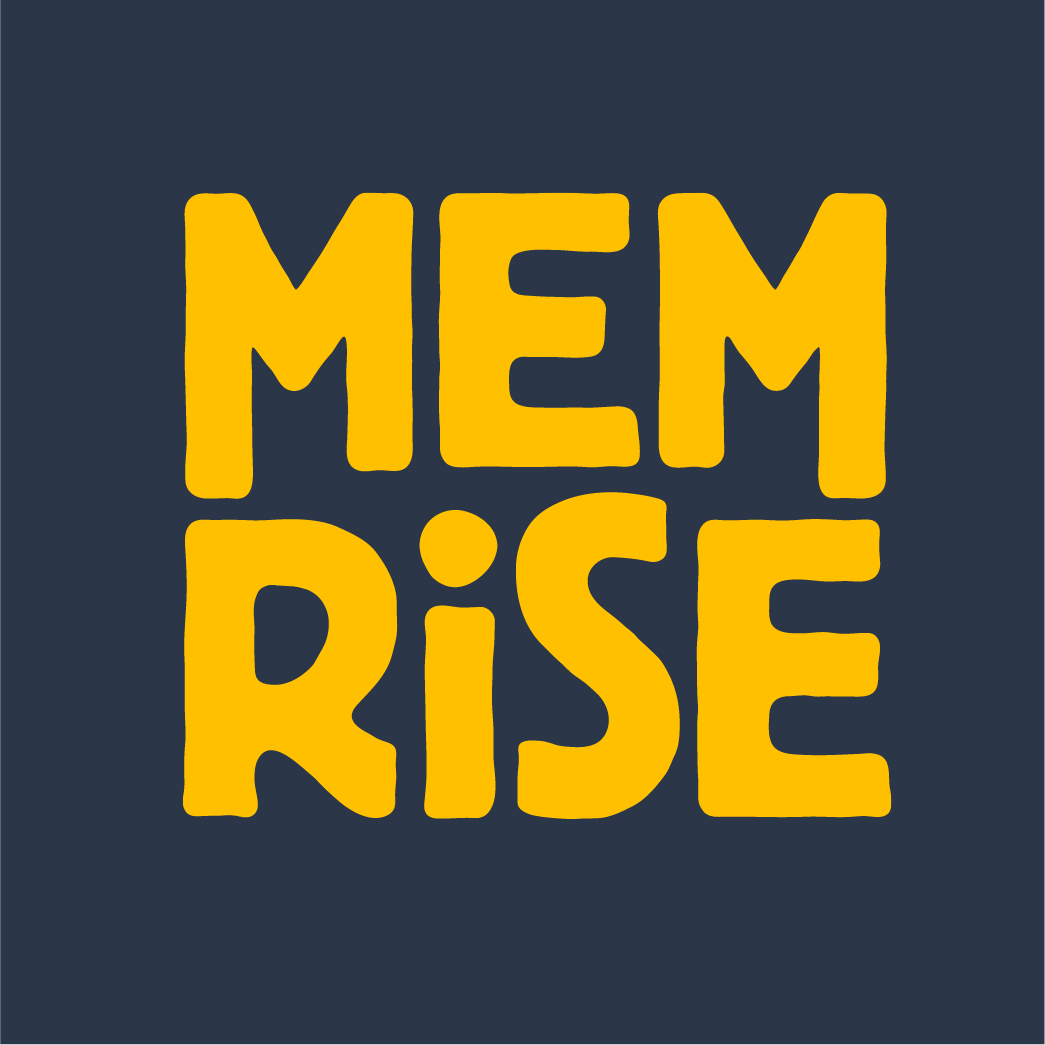
13 Best Resources to Find Free French Lessons Online in 2024
Where can any French learner find high-quality French lessons, totally for free? The internet!
In this post, I’ll share 13 of the best resources for free French lessons online, so you can improve your skills at the click of a button.
Let’s hop online and learn French—c’est gratuit! (It’s free!)
Contents
- 1. Best for Vocabulary Building: Loecsen
- 2. Best for Reading Practice: The French Experiment
- 3. Best for Classroom-Style Lessons: elearningfrench
- 4. Best for Video Lessons: French in Action
- 5. Best for Bite-sized Learning: ielanguages
- 6. Best for On-the-go Learning: Memrise
- 7. Best for Intermediate & Advanced Learners: Français Authentique (Authentic French)
- 8. Best for Immersive French Lessons: Français avec Pierre (French with Pierre)
- 9. Best for Fun Exercises: Duolingo
- 10. Best for Online Courses: ALISON
- 11. Best for Feedback from Natives: Busuu
- 12. Best for Beginners: Bravolol
- 13. Best for French Words: Wordpower
- Can You Really Learn French for Free Online?
- Reasons to Learn French with Online Lessons
- And one more thing...
Download: This blog post is available as a convenient and portable PDF that you can take anywhere. Click here to get a copy. (Download)
1. Best for Vocabulary Building: Loecsen
Level: Beginner
Loecsen’s free online French lessons are split into 17 categories, starting with the most basic: “Essentials.” This section covers phrases from bonjour (hello) to à plus tard (see you later).
The website also includes several fun categories, such as French for the beach or the bar.
My favorites are the practical categories, such as “In case of trouble.” This section teaches you terms such as je suis perdu (I’m lost) and pouvez-vous appeler un médecin, s’il vous plaît? (Can you call a doctor, please?) If you’re planning to travel to a French-speaking region, you’ll definitely want to familiarize yourself with these terms!
How It Works:
When you choose a category, you’ll see a list of phrases in English. Click on the phrase, and the French words appear in a larger font. At the same time, you’ll see an image corresponding to the words and hear a speaker say the term in French.
Once you’ve studied that lesson, switch from the “player” tab to the “quiz” tab and see how much you’ve learned!
2. Best for Reading Practice: The French Experiment
Levels: Beginner and Intermediate
The French Experiment has numerous free French lessons for beginner and intermediate students.
For those who are just starting out, you can learn, say, vocabulary related to the days of the week or counting to a million. Intermediate learners can move on to French idioms or conversation filler words.
If you need a break from studying vocabulary, The French Experiment also covers multiple grammar rules, such as how to make sentences negative and how to make nouns possessive.
Not only are there pages related to vocabulary and grammar, but to spice things up, The French Experiment also has children’s stories you can read in French.
How It Works:
It’s pretty simple, really.
Choose your category. Then you’ll find a list of translated words and expressions. You can also click on each phrase to hear the words spoken aloud. Try repeating after the audio cue to practice your pronunciation and accent!
3. Best for Classroom-Style Lessons: elearningfrench
Levels: Beginner and Intermediate
This website has two free online French courses, one for beginners and one for intermediate learners. Each course is composed of 12 lessons.
How It Works:
Of the websites on this list, elearningfrench’s courses most resemble typical classroom-style French lessons. Except I think they’re even better, because you can finish them on your own time, in the comfort of your living room—and, of course, they’re free!
Each individual lesson includes audio files for listening exercises, as well as new vocabulary lists and grammar explanations. The website also provides practice drills so that by the end of the lesson, you’ll be confident enough to move on to the next one.
These courses also include quizzes and tests so even though you don’t have a teacher or classmates, you can still assess your skills and progress.
4. Best for Video Lessons: French in Action
Levels: All
Yes, here are free French lessons that are valuable even for advanced French students!
This website contains 52 videos, each around a half-hour in length. You can go through each video or skip ahead, depending on your skill level.
These free online French lessons were developed at Yale University, so you can count on their quality.
If you like methodical, cognitive lessons, French in Action is for you. These videos are instructional, while also mixing things up with short skits and dialogues.
How It Works:
While French in Action is a free instructional video series, it does have corresponding materials you can purchase online. Sorry, only the videos are free! Still, over 25 hours of free video lessons ain’t nothing to sneeze at.
The 52 videos are split into 17 categories like “Geography and Tourism” and “Entertainment.”
5. Best for Bite-sized Learning: ielanguages
Levels: All
ielanguages stands for “Indo-European languages,” and as its name suggests, it offers tutorials on multiple Indo-European languages such as Italian, Spanish and, of course, French.
What started off as a smaller idea from a single writer has grown into a multitude of tutorial-style language courses, spanning all major Indo-European languages as well as minor ones such as Icelandic and Afrikaans.
How It Works:
ielanguages is divided into bite-sized tutorials that offer quick and easy-to-follow lessons on grammar and vocabulary topics. The lessons follow a chronological order, meaning that each lesson builds on the skill of the previous one.
In fact, the tutorials cover basically all the topics in the French language, so you could logically start using ielanguages as a beginner and continue to use it when you become an intermediate and advanced learner of French.
The tutorial lessons are pretty short, generally introducing a new list of vocabulary or a short grammar explanation. This is followed by French audio as well as loads of example sentences to see the new vocabulary or grammar topic in context.
There are six levels of French tutorials that span more than 100 topics.
6. Best for On-the-go Learning: Memrise
Levels: All
Memrise is a wildly successful website and smartphone application that teaches languages at a variety of levels. In fact, it’s an established idea in the language learning community that Duolingo and Memrise compete for the top spot as the best app for learning a new language.
Memrise is free to use, but if you want more features you can pay for Memrise Pro at $14.99 a month (depending on the payment plan you choose).
How It Works:
The idea behind Memrise is simple yet highly effective: flashcards.
But these aren’t your grandpa’s flashcards. Memrise’s digital French flashcards include authentic French words and phrases and English translations as well as real French audio and videos.
As you master new words and phrases in French, the flashcard transforms from a “seed” to a full “flower,” indicating how well you’ve mastered a word. But like any good flower, you need to water it from time to time to keep it alive.
Enter Spaced Repetition System (SRS) technology.
SRS is an algorithm that taps into the natural memory processes of our brains to help us remember new French words. Once a flower flashcard blooms, the SRS algorithm will have you review the flashcard at strategic intervals to help you always remember the word or phrase.
Read our comprehensive Memrise review here.
7. Best for Intermediate & Advanced Learners: Français Authentique (Authentic French)
Levels: Intermediate to Advanced
This app is based on the successful Français Authentique YouTube channel.
Français authentique is a YouTube channel that’s run by native French speaker Johan. Johan is a French teacher but he’s also studied and mastered a few languages in his own right.
As such, this channel is aimed at helping people master the French language the way Johan believes we learn best: by being immersed!
How It Works:
The app is completely in French, this includes the actual in-app audio and video content as well as the descriptions and supporting materials.
Because of this, I recommend having a basis in the French language before tuning into a Français authentique. Learners can choose any audio or video they please and begin learning.
You can choose from topics related to vocabulary and grammar, often explaining a grammar topic in-depth with examples or giving a list of common vocabulary related to a specific topic.
New audio and video content is constantly added and PDF files can be downloaded from the app for learners to follow along.
8. Best for Immersive French Lessons: Français avec Pierre (French with Pierre)
Levels: All
Français avec Pierre is a YouTube channel that teaches the French language to intermediate and advanced learners.
The content is organized into more easy-to-follow playlists, making it simple to choose what content to study next.
How It Works:
As previously mentioned, this channel has playlists focused on specific levels of French. These include two video courses for beginners, a course for intermediate and advanced learners, a course on French expressions and a video course on French grammar.
Each course has various lessons on different topics. Each starts with an explanation of the topic as well as authentic French examples of the French in the video. Pierre, the teacher, is a native French teacher, and his accent is perfect for listening to real French.
Even the beginner videos are conducted in French, so you’re immersed in French right away. Each video comes with English and French subtitles.
9. Best for Fun Exercises: Duolingo
Levels: All

The lessons are made up of a variety of speaking, listening, translation and multiple choice exercises. You immediately see the answers when you give the right answer and when you don’t succeed at a challenge, Duolingo will show you how to improve.
How It Works:
Duolingo has a point system making it fun and even addictive. You can earn points for correct answers, doing timed exercises and leveling up.
Duolingo also keeps you on track by recording how many days in a row you spend learning a language and asking you to set up an objective when you first sign up.
You can create a profile to save your progress and Duolingo will send you daily reminders so that you don’t lose motivation! When you first begin you have two choices: to start at Basics 1 (for beginners) or to do a placement test to assess your level.
After having determined your level, you have a number of different categories that you can choose to learn grammar and vocabulary. The categories include things like: food, animals, phrases, possession, clothing, conjunctions, adverbs, household, etc.
Learn much more about using Duolingo in our in-depth review here.
10. Best for Online Courses: ALISON
Levels: Intermediate to Advanced
Alison is the world’s leading provider of online free courses with certificates, with over 5 million users and over 600 courses.
Alison stands for Advance Learning Interactive Systems Online and was created in 2007 with the purpose of helping people to gain basic education and workplace skills.
How It Works:
It has a large number of French courses which are free and which focus on basic language skills, grammar and vocabulary. Courses range between 6 and 10 hours with an assessment at the end and certification upon completion.
There are 6 modules for the French courses and you can speak to other students on the discussion forum. Alison is a great tool for anyone who wants a very structured, educational way of learning the French language.
Alison certificates cost between $15 USD and $100 USD depending on the course you take, or you can download the PDF of your certificate free of charge! It can be accessed through its website but isn’t available in app form yet.
11. Best for Feedback from Natives: Busuu
Levels: All
Busuu is the world’s largest social network for language learning. Communicate and practice your language skills with an international community of over 50 million native speakers!
How It Works:

The courses consist of speaking exercises, writing assignments and multiple choice questions. Sometimes the multiple choice questions are spoken and users speak to each other via chat-window or an audio or webcam connection.
You can use it for free as an ordinary member or upgrade to premium to have many more options and things to use!
The prices are very similar to Babbel if you pay per month and, like Babbel, the price is reduced depending on how long your subscription lasts.
The Busuu basic version is free indefinitely and offers 20 learning units.
Busuu also offers various upgrades and packages ranging from $17.99 USD per month to $152.99 USD every two years. Full standard price package rates are $22.49 USD every month to $539.99 USD every two years. Busuu is available through its website or app.
Learn more about Busuu with our in-depth review here.
12. Best for Beginners: Bravolol
Levels: All

Available in app form only, this quirky method of learning French focuses on giving you a phrasebook to learn commonly used French phrases and vocabulary.
The categories for vocabulary include greetings, eating, health, hobbies, travel, directions, weather, the time and many, many more!
The phrasebook has everything you need and more. You can also record and listen to yourself to practice your pronunciation, another thing that the application will help you with.
13. Best for French Words: Wordpower
Levels: All
Wordpower is another phrasebook-based learning method that’s only available in application form.
How It Works:

Two things I really like about this app: (1) you can track your progress with the progress bar and (2) you can save difficult words in your personalized word bank.
It’s a simple, easy-to-use and effective app, perfect if you want to brush up on your French or take your first steps.
Can You Really Learn French for Free Online?
I know, it almost seems too good to be true. Can you really learn French from your own home without spending a penny?
Oui, bien sûr! (Yes, of course!)
But it’s not going to be a walk in the park. Learning a language, no matter how you do it, requires time and hard work.
The good news is that as you develop your routine and build up some momentum and confidence, it’ll be easier and easier to find time and energy for your French studies every day.
You may even find that you get hooked on online French learning and want to graduate from beyond just free French lessons. When you’re ready to increase your budget and start investing in your language learning, you could try taking advantage of free trials.
FluentU takes authentic videos—like music videos, movie trailers, news and inspiring talks—and turns them into personalized language learning lessons.
You can try FluentU for free for 2 weeks. Check out the website or download the iOS app or Android app.
P.S. Click here to take advantage of our current sale! (Expires at the end of this month.)
Reasons to Learn French with Online Lessons
1. When you’re learning online, the learning process becomes 100% portable.
You can learn French at home or on the move, which is the ideal solution for people with busy jobs and/or family lives. Learning online is the most convenient way to learn a language for people who don’t have time to go to lessons!
2. You have the opportunity to exchange knowledge with people abroad.
You can contact native French speakers in other countries either through language-oriented chatrooms or through Skype. This gives you the rare opportunity to talk to native speakers of the language, something which will help you improve immensely.
3. The learning process can be tailored to exactly what you’re looking to improve.
If speaking is what you’d like to work on, you can use Skype lessons with a native French speaker. If you would prefer to focus on reading, writing or listening you can focus on more traditional, scholastic lessons.
You can even gear these lessons to your personal needs and interests, simply by choosing lessons that focus on a certain subject matter.
4. There are endless options to choose from.
There’s so much out there on the internet that you can find the lessons that suit you best and fulfill your needs!
5. It’s much more holistic than an ordinary lesson.
There are lots of images, videos and audio tools available to aid learning so it’s a much more interesting way to learn a language overall. Embrace multimedia!
6. It’s interactive.
Remember what it was like when you learned French (or any other subject) at school? You followed a textbook and did very little speaking, meaning that your learning experience was probably a little dull.
Online lessons are the opposite. They’re centered around you. They’re interactive and fun, keeping you interested in learning the language and, most importantly, keeping you motivated!
7. It’s cheaper than going to a language school.
There are many great sites that offer free online courses. There are also some paid courses, but the prices—compared to going to private lessons at a school—are much lower.
Plus, you don’t have extra expenses like travel and lost hours. In general, online lessons also allow you much more flexibility than the strict schedule of a language learning school.
8. You can set yourself goals within a certain time frame.
One of the best things about online lessons is being able to set yourself an objective with a time limit. You can choose different options based on how many times you can realistically practice the language per week.
The website or application will either send you emails or notifications to remind you that you should be practicing on that day, a little nudge to encourage you to stay on track.
It really helps, especially if you have a hectic work schedule!
9. Online lessons go back to basics.
Online lessons encourage people to learn a foreign language in the same way that they learned their native language, through repetition and increasing familiarity. The lessons don’t oblige you to read and translate large texts.
They encourage you to repeat words over and over, spelling them and translating them by themselves and in phrases. Images are also used so that you begin to associate the words with pictures, making it all easier to remember!
We learn our own languages like this, by repeating, repeating and repeating! Online lessons remind you that this is the best way to learn any language.
10. You can’t continue if you don’t pass!
You might be worried that online lessons are a little too flexible and forgiving. Well, last but not least, in most online courses, if you don’t get enough correct answers on quizzes and practice exercises you can’t continue on to the next lesson.
You need to master one level before proceeding to the next, which is critical for real, lasting learning. This is a great tool for language learners, as you’re clearly told when you have work to do on a certain subject.
Grammar is often the most difficult thing, so for tips on how to overcome this obstacle take a look at our article on learning French grammar.
All this means that your online classes will force you to revise the subjects you have difficulty with, for your own good.
Which one of these free websites best suits your needs and preferences? Do you thrive in the classroom? Do you like playing language games?
Regardless of your learning style, there are numerous ways to learn French for free, thanks to the internet. Even more importantly, regardless of your budget, you can learn French online!
Download: This blog post is available as a convenient and portable PDF that you can take anywhere. Click here to get a copy. (Download)
And one more thing...
If you like learning French on your own time and from the comfort of your smart device, then I'd be remiss to not tell you about FluentU.
FluentU has a wide variety of great content, like interviews, documentary excerpts and web series, as you can see here:

FluentU brings native French videos with reach. With interactive captions, you can tap on any word to see an image, definition and useful examples.

For example, if you tap on the word "crois," you'll see this:

Practice and reinforce all the vocabulary you've learned in a given video with learn mode. Swipe left or right to see more examples for the word you’re learning, and play the mini-games found in our dynamic flashcards, like "fill in the blank."

All throughout, FluentU tracks the vocabulary that you’re learning and uses this information to give you a totally personalized experience. It gives you extra practice with difficult words—and reminds you when it’s time to review what you’ve learned.
Start using the FluentU website on your computer or tablet or, better yet, download the FluentU app from the iTunes or Google Play store. Click here to take advantage of our current sale! (Expires at the end of this month.)










